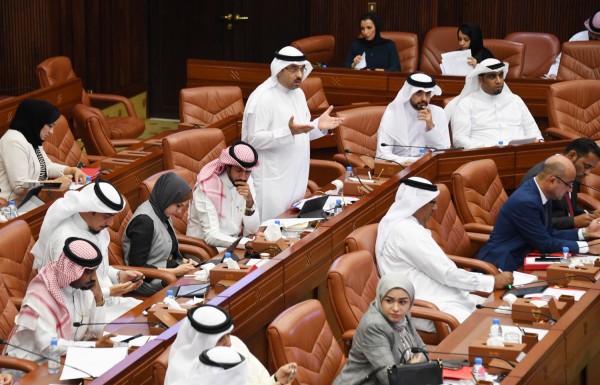Ibrahim Serhan: Absolute Power Means Absolute Corruption

2020-04-09 - 9:55 p
The recent amendments made to Bahrain's Criminal Procedure Code which the government proposed to the legislative authority to pass was not a shock to me. All Bahrainis, including me, have become used to these shocks by the government, which every now and then issues or amends a law that limits or restricts freedoms and rights. The most recent amendment to the Criminal Procedure Code affected eight of its articles and included the addition of ten more articles. There are legal observations and constitutional violations regarding these amendments, some of which are clearly deemed to be unconstitutional. It is strange that this amended law was discussed and studied by the official institutions which took part in preparing it over a whole year. Despite the obvious constitutional violations, it was finally issued after the king's approval on April 2, 2020.
One of the most prominent dangerous articles we can comment on is article 159, which is related to travel ban orders. This article didn't give the Public Prosecutor or renewing judge (who renews the pre-trial detention period) the authority to issue a travel ban, unless in case of temporary release (without filing a case) of a defendant accused of a felony or punishable misdemeanor. However, this article gave the defendant the right to object the verdict before the high criminal court. Before the amendment, this article may have had some legal protection and guarantee derived from constitutional principles, but after this last amendment, this legal guarantee is now withdrawn in an unconstitutional way. How can a Public Prosecutor issue a travel ban, with absolute discretion and away from any judicial supervision, against a citizen who has been suspected or accused before even interrogating him? The article should include restrictions imposed on the Public Prosecutor so that he does not arbitrarily issue such bans, noting that the bans should be issued under a judicial oversight and should also give the suspect, whom a travel ban has been issued against, the right to challenge it in courts.
In criminal jurisprudence, the Criminal Procedure Code is called the law governing freedoms, and therefore it acquires the status of the basic law, which is lower than the Constitution and higher than ordinary laws, due to its importance and seriousness, because it directly affects rights and freedoms.
Accordingly, the Bahraini legislature has committed a clear violation of article 19 of the Bahraini Constitution. Thus, the freedoms of individuals may not be limited or restricted without judicial oversight, however, the amendment gave the Public Prosecutor absolute power and without judicial oversight to do so and prevented the suspect or accused of defending his right. If the accused is innocent until proven guilty by a judicial verdict, the suspect or accused has the right to know the reasons before or immediately after a travel ban order is issued against him and should have the right to appeal it legally.
The drop in the protection of public freedoms is very frightening in Bahrain because of the amendments and legislation which have been restricting rights and freedoms since 2011. Who heads the legislative authority? Shouldn't it work to preserve the Constitution, rights and freedoms? Shouldn't it be in the service of citizens? If this authority is not interested in the international laws and contractual obligations, it must abide by the constitutional principles and provisions.
*Legal Advisor, Salam for Democracy and Human Rights
- 2025-07-17Bahrain: Ashura Violations and the Need for Constitutional Guarantees
- 2025-07-16þBahrain: The Day After the Release of Political Prisoners?
- 2024-07-10Bahrain Between External Peace and Internal Reconciliation: Unresolved Issues Require Fundamental Solutions
- 2023-10-02Latifa Al-Husseini: How Many More Blows Must Bahrain's Regime Cause Itself?
- 2023-08-07Latifa Al-Husseini: Ashura in Bahrain